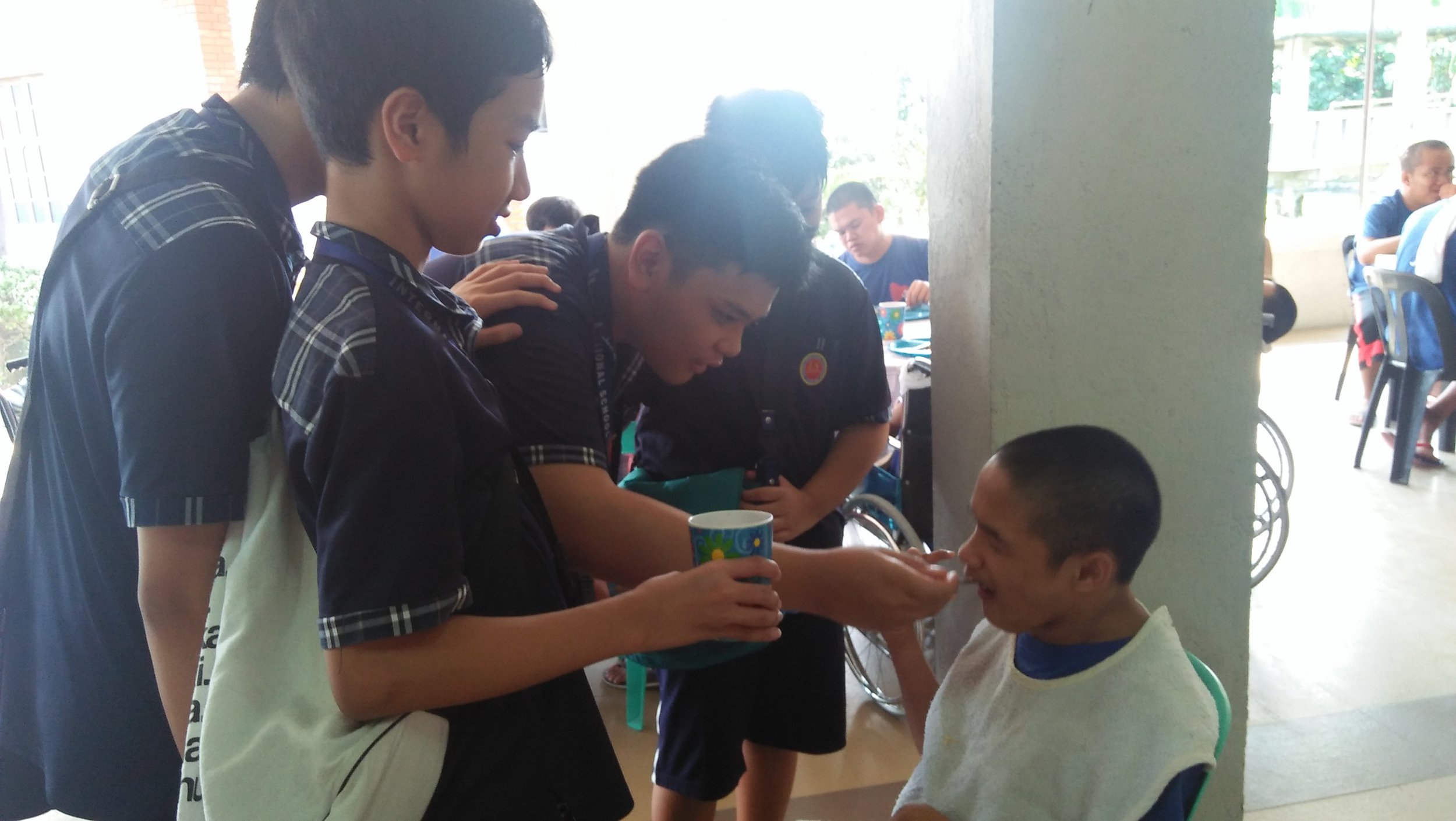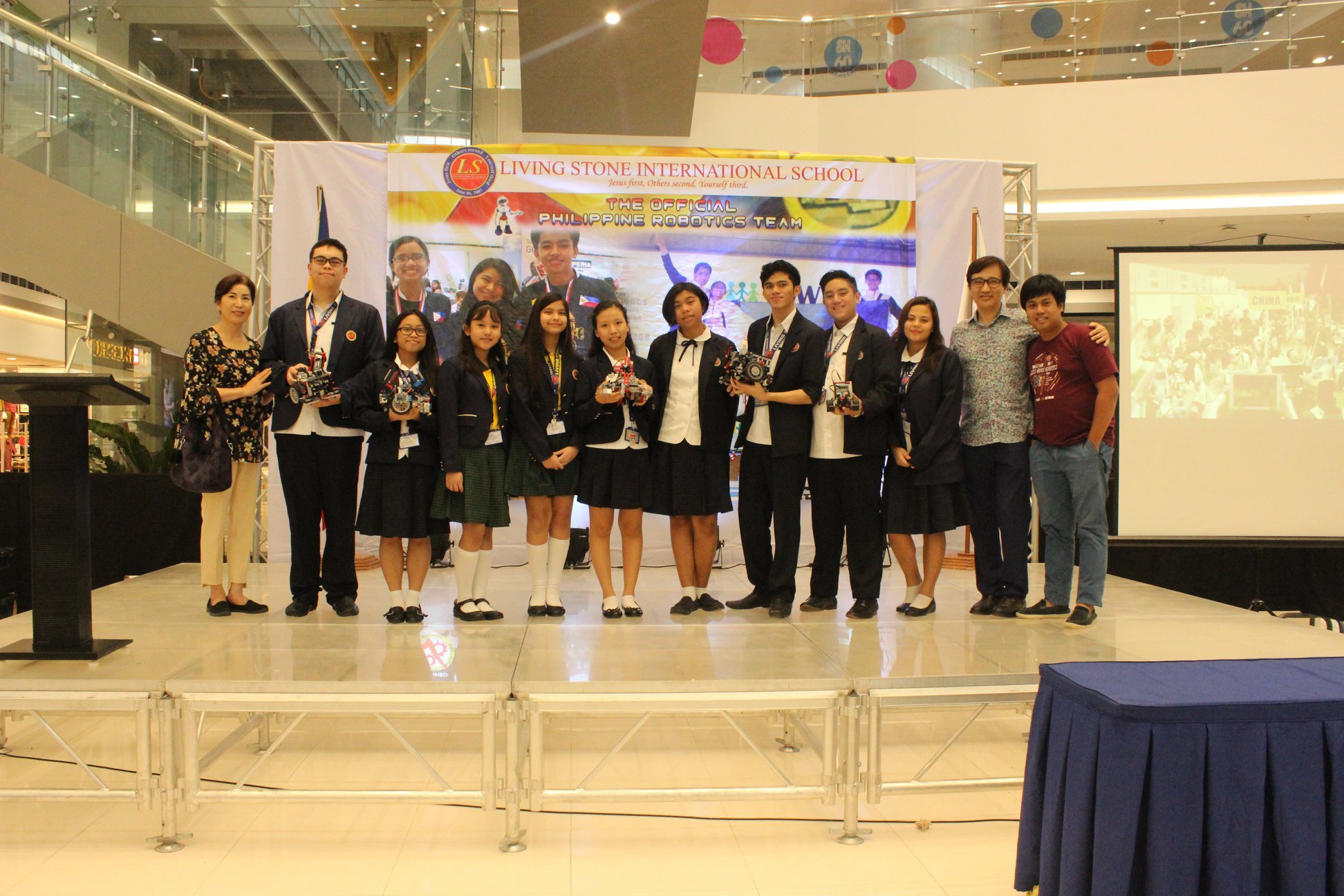JUNIOR HIGH SCHOOL
Offering a sound and promising education, the LSIS Junior High School Academic Program has a strong academic foundation that provides each student various opportunities to be co-creators of their own learning experiences through experiential and integrated academic approaches deeply rooted in the vision of producing graduates armed with academic excellence to serve and bring positive change in the society.
Providing more than the minimum academic requirements set by the Department of Education, having a well-integrated classroom, school-based and community-based activities (Outdoor, GGHr and Outreach/Witnessing), well-defined & constructed summative assessments, and implementing advanced programs in ICT and Robotics guarantee that the JHS students’ learning environment is filled with authentic learning experiences, honed with critical thinking skills and equipped with the technological skills towards the 4th Industrial Revolution.







Overview of the Junior High School Curriculum and its Academic Programs
In line with the school’s specific goals and objectives, the Junior High School Curriculum of Living Stone International School resonates with the vision and mission of the Department of Education of the Philippines, which is providing learners with the 21st Century skills as demanded by the workforce. On top of this, the academic programs aim to:
Provide global learning and education by focusing on the multi-cultural perspective of its students as one source of strength;
Prepare its students for their entry to colleges and universities throughout the world;
Hone students to their utmost potentials to become productive citizens of whatever nation they belong, in cooperation with the parents, family, and community;
Develop competencies that are necessary to gear students towards the Fourth Industrial Revolution by acquiring the 21st-century skills of critical thinking, creativity, collaboration, and communication; and,
Develop a culture of excellence as defined by international standards.
Curricular offerings that implement various academic programs are listed as follows:
1) English: Taught using, primarily, integrated and spiral approaches, the English academic programs cover the four macro skills, Literature (with Critical Reading), Grammar & Composition, and Speech.
2) Science: Covered in a spiral progression approach, the content standards include Earth Science, Biology, Physics, and Chemistry.
3) Mathematics: Teaching approaches use an integration of subject matter (within and outside the discipline); content standards are covered in a spiral progression approach including, Algebra, Geometry, Trigonometry, Statistics, and Probability.
4) Social Studies: This covers an enhanced program that culminates into a call for students’ response and action addressing a particular community issue or concern; content standards include Asian History, World History, Economics, and Contemporary Issues.
5) Filipino: This covers literary reading and texts using Philippine literature including those from the regions; content standards include a critical reading of Florante at Laura, Noli me Tangere, and El Filibusterismo. It also addresses the particular needs of foreign students by offering Special Filipino classes that implement modules that are designed according to the individual needs of the students.
6) MAPEH: Segmented in four different modules, Music, Arts, PE, and Health, it serves as a platform that showcases students’ integrated learnings within the discipline, as well as with the other learning areas.
7) TLE/ICT: Focused on the demands of a fast-growing economy that is primarily anchored on a fast-changing technology, the school’s TLE program covers four modules of ICT (Photoshop for Digital Arts /Trouble Shooting, Animation, Web Design, and Programming using Visual Basic). Students who are interested in doing other modules of TLE are accommodated and taught the necessary skills through Student Organizations or Interest Clubs such as Culinary Arts Cuisine, Quilting, Sewing, Entrepreneurs' Club, and the like.
8) Homeroom Guidance Program (HGP): Premised on the particular needs of each grade level, as well as on the individual needs of the students, HGP delivers the realization to the young minds of the students the need for effective time management and good study habits, positive attitude towards schoolwork and academic requirements, and preparing for and making informed career choices.
9) Values Education: This area ultimately aims at achieving a strong value formation among students. Premised on the school’s core values that are integrated with all learning areas, as well as the individual needs of the students, it covers programs and activities that all culminate into witnessing and immersion programs.

